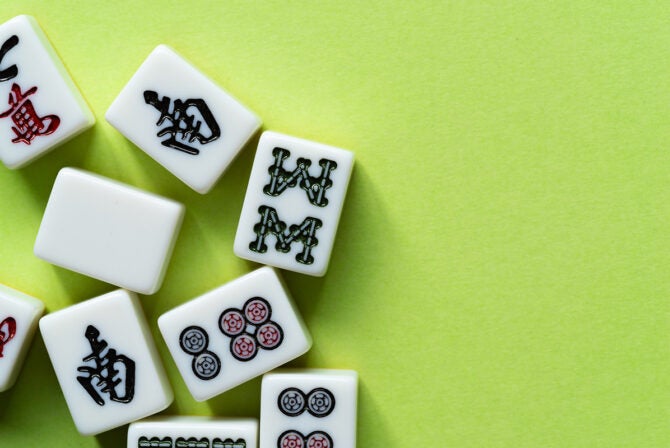
The JCC of the Upper West Side (in New York City) held an art exhibition last month. It was called “Migrants Nation” and, according to curator Vitaly Umansky, “Artists represented in this exhibition underwent assimilation either into an Israeli or American reality; they all have personal stories; they are all individuals. However, they all share one history. Regardless of the environment to which they had to assimilate to, they all have different levels of nostalgia, analysis, and assimilation.”
All of the artists in the exhibition were born in the former Soviet Union, and all emigrated as children in either the 1970s or 1980s. Exactly like me.
I went to the exhibit. And I took my kids. For a couple of reasons.
My 12-year-old is really interested in art, my 8-year-old refuses to speak or even listen to Russian, so naturally I try to force him into it as often as possible, and my 4-year-old… I had no one to watch her if the rest of us went out.
As it turned out, all three enjoyed the exhibition. (There was cheese! And crackers! And soda! The former two, we actually have in the house. The latter, they fell on like I’d been starving them.)
My oldest son did some sketching, my middle one glowered–politely, at least (and quietly), and my youngest smiled beguilingly, magnanimously allowing people to compliment her on her beauty and manners.
Meanwhile, I wandered around the gallery. And grew more and more uncomfortable.
The images in every exhibit were intimately familiar to me. There was the silver tea service identical to the one my parents had. A tablecloth with similar design and fringes. One artist even had watercolor copies of her black and white family photos which, despite belonging to someone else, in poses and dress and composition looked exactly like the ones my parents had managed to bring to America with them.
And under every self-penned Artists’ Bio, were gloomy words of feeling like an exile, of living with a foot in two worlds, versed in the cultures of both, belonging to neither.
I totally get it.
But, here’s my own guilty secret: I actually like it.
I’ve always liked being different from the people around me. I liked being the only Russian-speaking immigrant in my San Francisco second grade class (until other kids began arriving in droves). I liked being one of a handful of Caucasians in my primarily Asian magnet high-school. I liked being the youngest person in job settings (yeah, those days are long gone, but it was fun while it lasted). And I like being one-half of the sole interracial couple in the room. (In fact, when my husband and I see another pair, we look at each other and warn, “Watch out, we’re becoming a cliché!”) In other words, I like standing out.
I like being a freak.
But, that’s me.
I look over at my kids (sketching, glowering, and flirting, respectively), and I wonder if I have the right to make them into freaks, too?
They already have a complicated American identity to sift through for themselves. An African-American father and a Jewish mother, one set of grandparents with roots in the US South, another who will never speak English without an accent, all while attending predominantly white schools. That would be enough for any kid to grapple with.
Do I have the right to affix my ambivalent, ex-Soviet identity on top of all that?
I look at the art instillations and I read what inspired (and disheartened) their creators and I think: Do I want to do this to my kids?
Do I want to make them live with one foot in so many different worlds? (They don’t even have that many feet collectively, much less individually!)
Should I make life easier for them? Would simpler, in fact, be easier? Or merely difficult in a different way?
And if simpler is easier, which extraneous identity would it be most reasonable to erase?
The answer is obvious.
Mine.
At least, the Soviet-born part. I could stop speaking to them in Russian (my 8-year-old certainly wouldn’t mind). Stop telling them stories and reading them books from my own childhood. Stop bringing strange feta cheeses and pickled herring with schmaltz and bags of roasted sunflower seeds into the house.
I doubt they’d miss it. (Well, maybe the roasted sunflower seeds… those suckers are seriously addictive.)
But, would they be relieved? Would they embrace becoming more normal, more like the people around them, more like… everybody else? (At least on the surface.)
Once upon a time, my parents made the decision to uproot me from one place, settle me in another, and they expected me to deal with all the subsequent repercussions.
I did. And I’m fine. (Those who disagree may let me know in the comments. I’m always open to constructive criticism.)
But, when it comes to my own kids, I wonder.
And probably always will.







